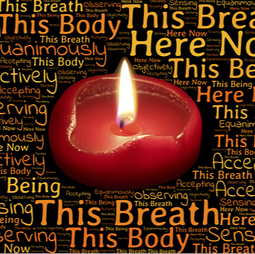ENLIGHTEN UP! a blogSelf-awareness stories: lighting our way to clarity, contentment and resilience in a complicated world.
|
 "One moment of patience may ward off great disaster. One moment of impatience may ruin a whole life." — Chinese Proverb As self-aware human beings we have the power to avoid many instances of disaster and ruin by transforming impatience into patience. A well-honed patience practice leads to skillful action, which can improve our daily lives and our efforts to make the world a better place. Patience is the ability to endure difficult circumstances. It helps us exhibit perseverance in the face of delay; tolerance of provocation without responding with annoyance and anger; or forbearance when under strain, especially when faced with long-term difficulties. And oh, boy, does that resonate in these times with lockdowns, long lines, endless Zoom meetings, physical distancing and masks, along with generous helpings of personal, social and political provocation. There are many benefits to patience as a value, a virtue and a practice. Patient people:
Impatience is usually triggered when we want to accomplish something and suddenly realize that it’s going to require more energy, time and work than we thought. Impatience can leave us feeling annoyed, anxious, agitated, and frustrated. The first step in assessing how we can transform impatience into patience is to answer these questions:
The second step is to understand the upside to impatience. Viewed in this way impatience may be prompting us to:
Knowing when impatience is arising; knowing what triggered it and becoming self-aware of how we act when it does show up is key to transforming it. As a recovering perfectionist I am inherently an impatient person who needs to work diligently on a patience practice. Here are two examples of how that works in my daily life. 1. I love to write. When working on fiction or non-fiction, I often hit a block and get stuck, which gives rise to impatience. That’s a problem. When that happens, I have two choices: I can push forward and force words onto the page to ‘get it done’ or I can see it as a signal to take a break or a breath, practice patience and let the piece sit for a while, often overnight (or a few nights). This gives the words time to form and develop before I write them down — that’s a patience practice that promotes skillful action. 2. Impatience flares up when I’m waiting in a long line at the supermarket or sitting in stalled traffic. That’s a problem. I can react with irritation or see the situation as an opportunity to practice patience. I can choose skillful action and do some slow, deep breathing. I can recognize that the world will not end if I have to wait a few minutes before moving on to the next task on my to do list. This dynamic also works with major issues such as the Covid 19 pandemic, racial unrest, global warming, social injustice and financial inequality. The late congressman and civil rights activist John Lewis’ life is a shining example of this. It was impatience with racism, prejudice and social injustice that led him to write a letter to Dr. Martin Luther King and join the civil rights movement but it was the patience he learned, nurtured and sustained that led him to spend the rest of his life slowly, incrementally and painfully moving forward in spite of difficult circumstances. He exhibited patience in the face of political opposition, social delay and resistance. He exhibited patience as he tolerated and managed the violence and provocation that came his way, and he used his patience practice to, “get into good trouble; necessary trouble.” Those of us who are ‘woke’ or waking up will find many opportunities to practice patience in our daily lives or within a larger social movement. Your mission, if you choose to accept it, is to recognize and transform impatience into patience and then select skillful actions to address what you are facing, whether it’s the social issues of the day, or personal issues, like waiting in long lines, dealing with difficult family situations or tackling the last item on your to-do list. How can you do that? Try sending yourself an S. O. S. — the universal distress signal. Stop. Observe. Select. When you find yourself faced with a problem, situation or issue that gives rise to impatience, Stop and Observe before Selecting an action that fits your highest intention. This will require self-awareness and a dose of delayed gratification. Instructions Stop! Tune into sensations in your body, breath/energy and ask yourself the following types of questions. Physical Body How is this situation, issue or problem manifesting in my body? Do I feel tightness, tension or pain anywhere? Are my fists or jaw clenched? Am I frowning? Does my back hurt? Breath/Energy Is my breathing full and deep? Is my breath shallow or stuck in my chest or throat? Am I feeling tired, or fatigued? Am I feeling blocked, stuck or held back? Observe: Witness the mind and emotions Have I accurately and clearly assessed my situation? Have I thought through the consequences? How will the consequences affect me? Others? What am I feeling? Anger? Fear? Aversion? Grief? Am I anxious? Restless? Annoyed? Frustrated? Am I feeling caught up in my drama? Should I take action now or give it more reflection? Select: Skillful Action After you have stopped to observe what is happening within your being, you can consciously select an action that will be for your highest intention and do the most good. Being aware of when impatience arises; and knowing what triggers it will help you understand how to transform it and take skillful action. Need more information? Read about the 5 Layers of Self Awareness.
0 Comments
|
Archives
July 2024
AuthorBETH GIBBS started her yoga practice in 1968, four months after her son was born and she’s been practicing ever since. She currently teaches all levels therapeutic yoga classes for adults, and specialty classes for seniors in the Hartford, Connecticut area. Beth is a certified yoga therapist through the International Association of Yoga Therapists and is guest faculty at the Kripalu School of Integrative Yoga Therapy. She writes for the blogs, Yoga for Healthy Aging, and Accessible Yoga. Her master’s degree from Lesley University in Cambridge, MA is in Yoga Therapy and Mind/Body Health. Categories |
|
|
Enlighten Up! a Blog
|
Copyright © 2023 Beth Gibbs

 RSS Feed
RSS Feed
